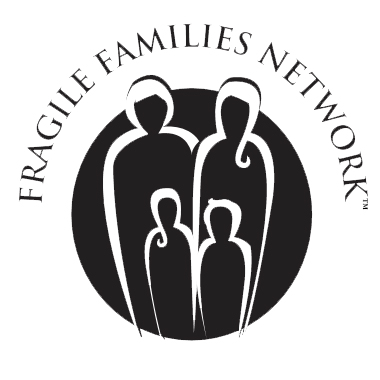Navigating the Legal Maze and Support Systems: Grandfamilies vs. Kinship Care Placements

Caregiving for children who cannot be cared for by their biological parents includes both grandfamilies and kinship care placements. While these arrangements may appear similar at a glance, significant differences in legal status and support systems impact the experiences of caregivers and the resources available to them and the children and youth in their care. Understanding these distinctions is crucial for ensuring that families receive the support they need to thrive.
Defining Grandfamilies and Kinship Care
Grandfamilies are typically arrangements where grandparents, aunts, uncles, older siblings, or other relatives take on the primary caregiving role for children. These families often come together out of necessity, responding to crises such as the death, disability, or substance abuse of the children’s parents.
Kinship care placements, on the other hand involve children being placed with relatives or close family friends (fictive kin) through the child welfare system. These placements are legally recognized and usually come with some level of government oversight and support.
Legal Status: Informal vs. Formal Arrangements
The primary difference between grandfamilies and kinship care placements lies in their legal status.
- Grandfamilies: In many cases, grandfamilies operate without formal legal arrangements. This can mean that caregivers do not have legal custody or guardianship, which can complicate matters such as enrolling children in school, consenting to medical treatment, and accessing financial support. Some grandfamilies may choose to pursue legal guardianship or custody, but this process can be lengthy, complex, and costly.
- Kinship Care Placements: These arrangements are formalized through the child welfare system, providing caregivers with legal custody or guardianship. This legal recognition simplifies many aspects of caregiving, such as accessing educational and medical services, and often includes ongoing oversight and support from child welfare agencies.
Support Systems: Varying Levels of Assistance
The support systems available to grandfamilies and kinship care placements differ significantly, impacting the resources caregivers can access.
- Grandfamilies: Support for grandfamilies is often less structured and more variable. Caregivers may rely on personal networks, community organizations, and non-profit groups for assistance. While some states and localities have programs specifically designed to support grandfamilies, these resources can be inconsistent and may not be well-publicized. Financial assistance, such as Supplemental Security Income (SSI), is available, but navigating these systems can be challenging without formal legal status.
- Kinship Care Placements: Caregivers in kinship care placements generally have access to more comprehensive support systems. These can include financial assistance through foster care payments, access to health insurance for the children, respite care, and specialized training and counseling services. Additionally, child welfare agencies provide case management and other supports to ensure the well-being of both the children and the caregivers.
Impact on Caregivers, Children and Youth
The differences in legal status and support systems between grandfamilies and kinship care placements lead to varied experiences for caregivers and the children and youth in their care.
- Caregivers in Grandfamilies: These caregivers often face greater challenges due to the lack of formal recognition and support. They may struggle with legal issues, financial strain, and limited access to services. The emotional toll of these challenges can be significant, affecting both the caregivers and the children.
- Caregivers in Kinship Care Placements: While these caregivers benefit from more structured support, they also face unique challenges. The involvement of child welfare agencies can bring additional scrutiny and requirements, which some caregivers may find intrusive. However, the availability of financial, educational, and emotional support can significantly ease the burden of caregiving.
- Children and Youth in Grandfamilies: These children may experience more stability due to the continuity of staying within their extended family. However, the lack of formal support can impact their access to education, healthcare, and other services, potentially affecting their long-term well-being.
- Children and Youth in Kinship Care Placements: These children benefit from the structured support and resources provided through formalized placements. This can lead to better access to healthcare, education, and therapeutic services, supporting their overall development and well-being. However, the involvement of the child welfare system can sometimes be stressful and stigmatizing.
Enhancing Support for All Caregiving Families
To better support both grandfamilies and kinship care placements, several steps can be taken:
- Improving Legal and Financial Support: Streamlining the process for obtaining legal guardianship or custody and increasing financial assistance for all caregiving families can alleviate many of the challenges faced by grandfamilies.
- Expanding Access to Services: Ensuring that all caregiving families have access to comprehensive support services, regardless of their formal status, can help meet the needs of caregivers and children alike. This includes healthcare, educational support, counseling, and respite care.
- Raising Awareness and Providing Training: Increasing awareness of available resources and providing training for caregivers can empower them to navigate the complexities of caregiving more effectively.
- Advocating for Policy Changes: Advocating for policy changes at the state and federal levels can help create a more supportive environment for all caregiving families. This includes recognizing the contributions of grandfamilies and ensuring they receive the same level of support as kinship care placements.
While grandfamilies and kinship care placements share the common goal of providing a safe and nurturing environment for children in need, the differences in their legal status and support systems significantly impact the experiences of caregivers and the resources available to them. By understanding these distinctions and working to enhance support for all caregiving families, we can ensure that every child has the opportunity to thrive in a loving and stable home.
©2024 Fragile Families NETWORK







